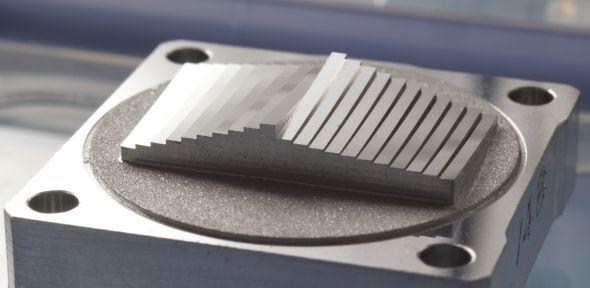
Cranfield MRes
Full-time students register to study on the course for 12 months. The MRes starts in October each year. Students are asked to select six taught modules from a total of twelve modules. Three modules are compulsory and three are electives. Eight are taught one-week intensive modules. Four modules are delivered through laboratory based learning activities. In addition, students develop their professional skills through activities such as presentations, writing up, entrepreneurial talks and conference organising.
As 100% postgraduate University, Cranfield offers a very professional environment for young Ultra Precision engineers and scientists. The exposure to high end technologies and scientific projects enables me to determine my career path.
Adam Bennett, PhD
Course Structure
This is a twelve-month course, commencing in October. The MRes in Manufacturing is a postgraduate research award that combines supervised independent research with specialist trainings. To support your learning, you are required to:
- Attend and undertake assessments in six modules (taught or laboratory);
- Write up a research thesis about your own research project.
Research project
The students are offered a number of individual projects from supervisors who are willing to support these projects. The projects start in October and are completed in September. The project topics are spread across the field Ultra Precision engineering. Some time, the research project is spent at the sponsor location.
Through your research project, you will have the opportunity to work with industry in areas such as precision machine tools, reel-to-reel, metrology, plasma processing, and abrasive precision processes.
The academics of the Precision Engineering Institute will secure research projects for you either through the industrial partners or from existing research pursued at Cranfield University. The research project provides you with the opportunity to demonstrate independent research capability, the ability to think and work in an original way, contribute to knowledge, and solve real problems. You will select your research project in consultation with your supervisor.
By the end of the research project you will be able to demonstrate your research capability. You and your work will be assessed by appointed examiners.
Taught modules
The taught modules cover the vast field of Ultra Precision engineering. The modules are taught at Cranfield, Cambridge and the National Physical Laboratory (NPL). The modules are mostly taught in week blocks with the assignment being set at the end. Where students are taught in block weeks away from Cranfield, accommodation is provided.
Laboratory modules
The laboratory modules cover in-depth specific areas of Ultra Precision Engineering. The labs immerse students into the practical aspects of Ultra Precision Engineering such as measurement sciences, ultra-precision machining, machine performance assessments, energy beam and laser machining. A unique experience is offered to the students. The lab modules are delivered in one- or two-day intervals, with a write up being the main assessment. The laboratory modules are scheduled prior the commencement of research projects.
MRes examination
The degree of Master of Research recognises your ability to conduct research in your research area. The results of your research will be assessed by appointed examiners and evidenced by the thesis submitted. The thesis is the result of a structured programme, which includes six taught modules. Your research project thesis and examination will determine whether or not you achieve your MRes.

